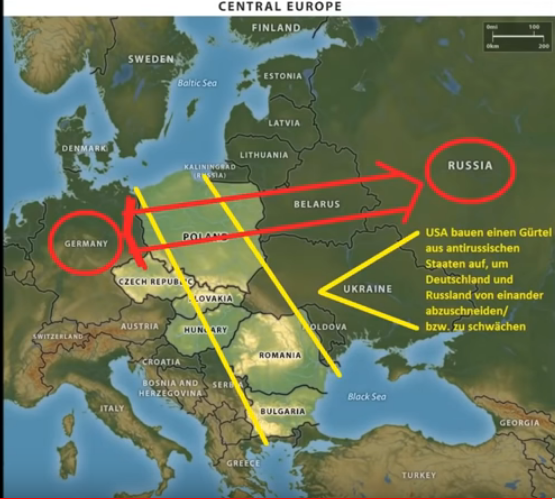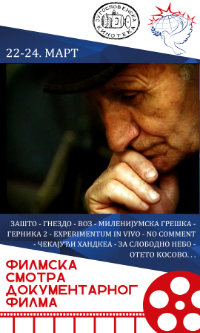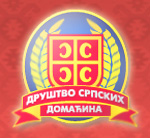An interesting letter on the East-West conflict by Lieutenant Colonel (ret.) Jochen Scholz
| Activities - Comments |
Jochen Scholz 1 was a professional officer in the German Air Force until 2000. During his career he worked for many years in NATO committees, multinational NATO staffs and in the German Ministry of Defense. Later, Scholz was active in the peace movement and since then has also repeatedly spoken out critically on current developments. Now Jochen Scholz has written a letter to a member of a regional german parliament, which contains an immense number of interesting facts about the build-up to the East-West conflict. We are pleased to be able to publish this piece of writing for our readers.
The reason for my mail to a member of a regional parliament was, on the one hand, his letter to the editor of the FAZ 2 , which shows that he has adopted the propaganda in the German mainstream press about aggressive Russia and is obviously completely clueless as to why relations between Germany and the Russian Federation are so desolate. Second, to clarify what to make of the NATO Secretary General's claim of a military threat to Ukraine from Russian troops, as recently voiced by retired Lieutenant General Brauß 3.
Brauß was NATO's Assistant Secretary General for Defense Policy and Force Planning from 2013 to July 2018. Today, he is a "Senior Associate Fellow at DGAP (German Council on Foreign Relations), working in the fields of European security and defense, NATO development, and NATO-EU cooperation." 4
Some notes and clarifications have been added to the original mail for better understanding
Dear Mr..
Looking at your professional and political background, I am somewhat surprised at the vehemence with which you obviously hold Russia responsible for the security situation in Eastern Europe. That is courageous. However, one should never forget to ask what is action and what is reaction and, above all, not to confuse the two.
Let me give you a few pointers on this.
1. the telephone conversation between President Bush and Chancellor Kohl in May 1990 5
2. the promised implementation (transformarion of NATO into a consultative body) at the following NATO summit in London 6
3. the Charter of Paris in the same year 7
4. And what happened next? With the Wolfowitz Doctrine, also known as the "No-Rivals-Plan", all agreements were turned into their opposite 8
All further strategy documents since that time have gone in the direction taken at that time.
NATO's eastward expansion today sees the alliance on the Russian border. Former U.S. Ambassador to Moscow Jack Matlock, who participated in all the reunification negotiations in Moscow, commented, quote:
"I'm sure if Bush had been reelected and Gorbachev had remained president of the USSR, there would have been no NATO expansion during their tenure. There was no way to commit successors, and when Gorbachev was deposed and the USSR broke apart, their arrangements became moot." 9
The essence of NATO's eastward expansion was and still is evident from Willy Wimmmer's letter to then-Chancellor Schröder. He discusses the contents of the Bratislava conference in 2000, which was held on behalf of the State Department by the American Enterprise Institute, whose working group "Project for the New American Century " 10 published the strategy paper "Rebuilding America's Defenses" 11 a few months later, to which only neocons contributed. Ten individuals from the working group served in the George W. Bush administration beginning in 2001, including Cheney, Rumsfeld, and Wolfowitz. The implementation of the Bratislava intentions occurred in 2002, and NATO was expanded to include the three Baltic states, Romania, Bulgaria, Slovenia, and Slovakia.
Willy Wimmer's letter can be found here 12 on pages 7 and 8.
Fifteen years after Bratislava, George Friedman, then head of the private intelligence agency STRATFOR, gives a talk at a Chicago think tank, puts on this slide in the subsequent press conference and declares as a constant goal of American foreign policy to prevent a prosperous German-Russian coexistence. 13

(Note: this excerpt from the subsequent press conference was edited by the authors for clarity with the yellow statements, the graphic appears from minute 11:10).
A year earlier, Friedman had already used the graphic in this STRATFOR article 14 under the title "THE NEW CONTAINMENT," thus reactivating the name for the strategy of containing the Soviet Union, the "Truman Doctrine" 15 which marked the beginning of the Cold War in 1947.
In this respect, one can imagine that after President Putin's 2001 speech in the German Bundestag 16 all alarm bells went off on the other side of the Atlantic.
Friedman's remarks could be called Continuity of History and Strategy, in reference to another term (Continuity of Government)
You are complaining about the development of Russian hypersonic missiles. Well, who unilaterally terminated the ABM Treaty in 2001 and at the same time started to deploy the AEGIS missile defense system in Eastern Europe and on ships? Should Russia have stood by, exposed itself to the U.S. blackmail calculus? A calculus that U.S. political scientists Keir A. Lieber and Daryl G. Press describe as follows on page 22 of the analysis below 17, which also appeared in the leading U.S. foreign policy journal Foreign Affairs:
"Although both criticisms are cogent, even a limited missile shield
could be a powerful complement to the offensive capabilities of U.S. nuclear
forces. Russia has approximately 3,500 strategic nuclear warheads today, but if
the United States struck before Russian forces were alerted, Russia would be
lucky if a half-dozen warheads survived. A functioning missile defense system
could conceivably destroy six warheads. Furthermore, the problem of differen-
tiating warheads from decoys becomes less important if only a handful of sur-
viving enemy warheads and decoys are left to intercept. Facing a small
number of incoming warheads and decoys, U.S. interceptors could simply tar-
get them all."
To the point: Neutralizing Russia's second-strike capability through the missile defense system.
When the two authors presented their 2006 study at the Einstein Forum in Potsdam in 2007, not a single journalist from our major national newspapers was present.
A leap into the year 2021, as far as Russian troops on Ukraine's eastern border are concerned.
Do you know this decree of the National Security Council of Ukraine from March 2021? 18
"On the strategy of evacuation and reintegration of the temporarily occupied territories of the Autonomous Republic of Crimea and the city of Sevastopol.
In accordance with the provisions of Article 4 of the Law of Ukraine "On the National Security and Defense Council of Ukraine", the National Security and Defense Council of Ukraine, having considered the draft Strategy of de-occupation and reintegration of the Timorese occupied territory of the Autonomous Republic of Crimea and the city of Sevastopol, has decided:
1. recommendation of the draft strategy for de-occupation and reintegration of the temporarily occupied territory of the Autonomous Republic of Crimea and the city of Sevastopol.
2. requesting the President of Ukraine to approve the Strategy for Deconcentration and Reintegration of the Temporarily Occupied Territory of the Autonomous Republic of Crimea and the City of Sevastopol.
3. the Cabinet of Ministers of Ukraine to develop and approve within three months a plan of measures for the implementation of the strategy for the evacuation and reintegration of the temporarily occupied territories of the Autonomous Republic of Crimea and the city of Sevastopol.
Secretary of the Ukrainian National Security and Defense Council O. Danilov".
Russia should not be allowed to react to this, especially since you can be sure that such decisions are not made in Ukraine without Washington's and London's approval or acquiescence?
I could go on citing a plethora of documents that refute your claims of Russia's aggression. However, I do have a few recommendations, however. First, reading Horst Teltschik's book "Russian Roulette" and reading Brzezinski's book "The Grand Chessboard"; then it will become clear why things have turned out the way Teltschik laments.
Secondly, you could drop by Jüchen and ask Willy Wimmer for a private lecture. Finally, in future you should not read FAZ comments and articles by journalists Kohler, Frankenberger, Veser, Busse, Friedrich Schmidt, Ross, Sturm, if they deal with Russia. In other major daily newspapers, too, you will be served exclusively transatlantic one-size-fits-all sauce. The times when Karl Feldmeyer 19 could still write editorials, like the one attached, are long gone.
The fact that I read this newspaper has other reasons than to inform myself about foreign policy. Namely, the breadth of the offerings in "State and Law," "Events and Figures," "The Order of the Economy," "Educational Worlds," to name a few, and now and then illuminating things in the feuilleton, as these two examples show
Reinhard Merkel 20 and Hans-Christof Kraus, the only German scholar who understood the basis of any U.S. strategy regarding the Eurasian continent 21
With kind regards
Jochen Scholz
In the light of current events, let us take another look at the situation in Ukraine. If it has not been possible - so far at least - to admit it to NATO, one cannot help thinking that the unresolved conflict over Donetsk and Luhansk should also remain unresolved from the point of view of some Western countries. For then a means is always at hand with which the Russian Federation can be accused of an aggressive policy. The most recent example is the failure to hold a meeting in the so-called Normandy format 22 , which was planned for November 11 and for which the German and French foreign ministers blamed Russia in a joint statement 23 , without citing its reasons.
If the matter were not so serious, it could be dismissed as a farce. Foreign Minister Lavrov's collar has probably burst. Because after prior announcement to his partners, he made the diplomatic note exchange available to the international public 24.
It is clear from it that the German and French sides had no intention to influence Ukraine to finally comply with its obligations under the Mink II Agreement 25 of 2015 (!), which is applicable international law 26 . This primarily concerns points 9, 11 and 12.
In this respect, Russia does not consider a meeting to be purposeful and thus obsolete. In Lavrov's words, "One gets the impression that this is also an attempt to create conditions for a radical revision of the Package of Measures in order to please Kiev, which has been refusing to comply with it in an official and public manner."
Final remark with regard to the German generalship, for which Lieutenant General Brauß quoted above stands pars pro toto. Since the war against the Federal Republic of Yugoslavia in 1999, which was contrary to international law, it has been clear that the Generals have surrendered their obligations under the German Soldiers' Act in Washingtonington and sin against Stauffenberg 27 every year on July 20 in the Bendlerblock 28 with unctuous words. The prospect of being retired with a decent pension is more unbearable for this group of people than the prospect of being shot was for the officer who tried to kill Hitler in 1944.
When will these functional elites, when will our politicians and scientists in the "think tanks" understand that German and European interests must be directed toward peaceful, orderly conditions on our Eurasian continent, instead of subordinating themselves to Anglo-American interests, which want to prevent just that?
1 https://www.nachdenkseiten.de/?p=78459
2 https://www.britannica.com/topic/Frankfurter-Allgemeine-Zeitung
3 https://www.welt.de/politik/ausland/article235313842/Nato-Generalsekretaer-Jens-Stoltenberg-Koennen-nicht-annehmen-dass-dies-nur-ein-Bluff-ist.html
4 https://internationalepolitik.de/de/user/24884/heinrich-brauss
5 https://nsarchive.gwu.edu/sites/default/files/documents/6935350/National-Security-Archive-Doc-18-Memorandum-of.pdf
Quote President Bush: "He [Gorbachev] was also very interested in how NATO might change its doctrine, and I read him Article 2 of the NATO Charter, which Brian Mulroney had brought to my attention, just to show him the political nature of NATO. I think it will be crucial that we take steps at the NATO summit to convince him [Gorbachev] that NATO is changing in a way that does not threaten Soviet security."
6 https://www.nato.int/docu/comm/49-95/c900706a.htm
7 https://www.bundestag.de/resource/blob/189558/21543d1184c1f627412a3426e86a97cd/charta-data.pdf
https://www.osce.org/files/f/documents/0/6/39516.pdf
8 http://www.nytimes.com/1992/03/08/world/us-strategy-plan-calls-for-insuring-no-rivals-develop.html
9 http://jackmatlock.com/2014/04/nato-expansion-was-there-a-promise/
10 https://en.wikipedia.org/wiki/Project_for_the_New_American_Century
11 https://archive.org/details/RebuildingAmericasDefenses/mode/2up
12 http://www.nato-tribunal.de/blaetter_wimmer.pdf
Quote from Willy Wimmer's letter to the then Chancellor Schröder on the most important statements of the speakers:
„The European legal order is an obstacle to the implementation of NATO considerations.
hindering. The U.S. legal system is more suitable for this purpose, even when applied in Europe.
The war against the Federal Republic of Yugoslavia had been waged in order to revise General Eisenhower's wrong decision in the Second World War.
A stationing of US soldiers there had to be made up for strategic reasons.
The European allies had taken part in the war against Yugoslavia in order to be able to overcome the de facto dilemma arising from the Alliance's "New Strategic Concept" adopted in April 1999 and the Europeans' inclination towards a prior mandate from the UN or OSCE.
Notwithstanding the subsequent legalistic interpretation of the Europeans, according to which the war against Yugoslavia was an exceptional case of NATO's extended field of activity beyond the treaty area, it was of course a precedent that anyone could and would invoke at any time.
In the forthcoming NATO expansion, the spatial situation between the Baltic Sea and Anatolia must be restored to the way it was in the heyday of Roman expansion.
To this end, Poland must be surrounded to the north and south with democratic
neighbors, Romania and Bulgaria would have to ensure the land connection with
Turkey, Serbia (presumably for the purpose of securing a U.S. military presence) must be
be permanently excluded from European development.
North of Poland, the goal is to maintain complete control over access from St. Petersburg to the Baltic Sea.
In any process, the right of self-determination must be given precedence over all other rules orprovisions or rules of international law......................might shall prevail over right.
Where international law stands in the way, it is to be eliminated….When a similar development hit the League of Nations, the Second World War was no longer far away.
A way of thinking that sees its own interests so absolutely can only be called totalitarian. „
13 https://www.youtube.com/watch?v=ablI1v9PXpI
14 https://worldview.stratfor.com/article/estonia-azerbaijan-american-strategy-after-ukraine
15 https://de.wikipedia.org/wiki/Truman-Doktrin
16 https://www.bundestag.de/parlament/geschichte/gastredner/putin/putin_wort-244966
English:
http://en.kremlin.ru/events/president/transcripts/21340
17 https://www.belfercenter.org/sites/default/files/files/publication/is3004_pp007-044_lieberpress.pdf
18 https://www.president.gov.ua/documents/1172021-37533
It was announced on 26 February by President Zelinskyy
https://www.president.gov.ua/en/news/zvernennya-prezidenta-ukrayini-z-nagodi-dnya-sprotivu-okupac-66821
19 Karl Feldmeyer, FAZ v. 23. 11. 202, Seite 1 „Das Ende der alten NATO“, Zitat:
„Was immer sonst noch zum Verhalten der Bundesregierung zur Irak-Frage zu sagen ist, das Verhalten der deutschen Bevölkerung zu diesem Thema hat auch deutlich gemacht, daß die Öffnung der Nato für eine Politik der militärischen Intervention für Deutschland spezifische Probleme schaffen kann. Sie gründen nicht nur in der Feststellung des Grundgesetzes, daß die Bundesrepublik Streitkräfte "zum Zwecke der Verteidigung" unterhält, sondern in der Prägung durch die nationale Geschichte. Zwei Weltkriege haben dazu beigetragen, den Begriff "Verteidigung" ganz eng auszulegen. Was andernorts als "präemptive Intervention" bewertet werden mag, kann sich in den Augen der Deutschen als Angriff ausnehmen - und den verbieten UN-Charta und Grundgesetz. Schon Bismarck verweigerte das "praevenire". Für diese Haltung brauchen sich die Deutschen nicht zu entschuldigen, schon gar nicht bei ihren Verbündeten, die einst Opfer deutscher Angriffe waren.“
Karl Feldmeyer, Frankfurter Allgemeine Zeitung v. 23. 11. 202, page 1 "The end of the old NATO“, quote:
"Whatever else may be said about the behavior of the German government on the Iraq issue, the behavior of the German people on this issue has also made it clear that the opening of NATO to a policy of military intervention can create specific problems for Germany. They are based not only on the Basic Law's statement that the Federal Republic maintains armed forces "for the purpose of defense," but on the imprint of national history. Two world wars have contributed to a very narrow interpretation of the term "defense." What may be considered "preemptive intervention" elsewhere may turn out to be an attack in the eyes of the Germans - and that is forbidden by the UN Charter and the Basic Law. Even Bismarck refused to "praevenire". The Germans do not need to apologize for this attitude, certainly not to their allies who were once victims of German attacks."
20 http://www.faz.net/aktuell/feuilleton/debatten/die-krim-und-das-voelkerrecht-kuehle-ironie-der-geschichte-12884464.html?printPagedArticle=true#pageIndex_2
Quote Reinhard Merkel, Professor of Criminal Law and Philosophy of Law University of Hamburg:
„Did Russia annex Crimea? No. Were the referendum in Crimea and its secession from Ukraine illegal under international law? No. Were they therefore legal? No; they violated the Ukrainian constitution (but that is not a question of international law). But shouldn't Russia have refused Crimea's accession because of this unconstitutionality? No; the Ukrainian constitution does not bind Russia. So were its actions in accordance with international law? No; in any case, its military presence in Crimea outside its leased territories there was contrary to international law. Does it not follow from this that the secession of Crimea, which was made possible by this military presence in the first place, was null and void and thus that its subsequent accession to Russia was nothing other than a masked annexation? No.“
21 http://www.faz.net/aktuell/feuilleton/syrien-und-ihr-denkt-es-geht-um-einen-diktator-11830492.html
Hans-Christof Kraus, Professor of Modern and Contemporary History University of Passau, addresses the Syrian war and places it in the Anglo-American geopolitical strategies that are still valid today, based on Halford Mackinder's Heartland Theory, the title of the article is "And you think it's about a dictator.")
Heartland Theory
https://en.wikipedia.org/wiki/The_Geographical_Pivot_of_History
22 https://en.wikipedia.org/wiki/Normandy_Format
23 https://kiew.diplo.de/ua-de/aktuelles/-/2496302
24 https://bit.ly/3I7XTVk
25 https://www.bpb.de/201881/dokumentation-das-minsker-abkommen-vom-12-februar-2015
https://www.chathamhouse.org/2020/05/minsk-conundrum-western-policy-and- russias-war-eastern-ukraine-0/minsk-2-agreement
26 https://www.un.org/depts/german/sr/sr_14-15/sr2202.pdf
https://www.securitycouncilreport.org/atf/cf/%7B65BFCF9B-6D27-4E9C-8CD3-CF6E4FF96FF9%7D/s_res_2202.pdf
27 https://www.britannica.com/biography/Claus-Graf-Schenk-von-Stauffenberg
28 http://www.slowtravelberlin.com/widerstand-berlins-german-resistance-memorial/
| < Prev | Next > |
|---|
| Overstatement from Davos 2017. |
Liberal corporative capitalism, for reasons of lowering traveling costs, proposed not to travel to history alone but packed togather with NATO, EU and unipollar World Order. Workers participation has good chances to step in provisionally, buying time for full scale workers selfmanagment. |









